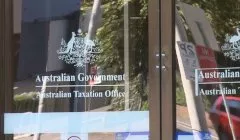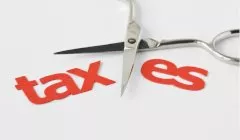Earn
How to prepare for your tax return
While the end of the financial year is still a couple of months away, you can take action now to help maximise your tax return.
How to prepare for your tax return
While the end of the financial year is still a couple of months away, you can take action now to help maximise your tax return.

If you tend to not think about your taxes until they’re already due, you could be causing yourself unnecessary hassle and may even be missing out on opportunities to boost your refund.
H&R Block director of tax communications Mark Chapman told nestegg that individuals should take the time to gather the information they will need to help them prepare their tax returns.
This includes invoices and receipts for work-related expenses as well as bank and credit card statements that contain work-related expenses which you don’t have receipts or invoices for.
“If you don’t have the paperwork, you can’t claim a deduction so it makes sense to set aside this time in advance of the end of the financial year to spare yourself a stressful document hunt whilst you’re actually in the process of getting your return prepared!” Mr Chapman said.

“In addition, if you’re claiming any expenses that have a work-related element and a private element (such as for the use of a personal mobile phone), set some time aside to work out what a reasonable apportionment is for the work-related bit.”
If you’re unsure about what is claimable, he suggested that individuals should still collect their receipts or invoices and discuss them with their tax agent.
Furthermore, Mr Chapman noted that it was not too late to do some tax planning to boost your refund for the current financial year.
Taxpayers can make a donation of $2 or more to a registered charitable organisation and then claim a deduction, so long as they have a receipt.
Tax deductions can also be claimed this year for expenses that wholly or partly relate to the following year.
“If you have some spare cash, consider paying things like union fees, professional subscriptions and annual insurance premiums in advance in order to accelerate the deduction,” said Mr Chapman.
Additionally, Aussies have the opportunity to make a tax deductible contribution to their superannuation.
“If you have some spare cash, look at making a personal contribution into your super fund,” Mr Chapman suggested.
“Provided the total amount of your contributions (including the contributions made on your behalf by your employer) does not exceed $27,500, this can be a great way to boost your retirement savings and claim a tax deduction for the personal contribution.”
The payment needs to be made by 30 June and individuals must advise their fund that they’ve made the payment by the time they lodge their tax return.
Top tips for tax time
Mr Chapman also outlined four top tips that Aussies should keep in mind when lodging their tax returns.
Firstly, he highlighted that individuals should ensure that they claim what they are entitled to.
“If you have spent something as part of your work, and you have the paperwork to prove it, claim it,” he stated.
This may include the costs of using your own car for work (excluding driving to and from work) and the cost of travelling for work such as meals and accommodation.
The costs of tools and other equipment can also be claimed, with items costing $300 or less deductible in the year you buy them, while items valued over $300 can be claimed progressively over the course of their lifespan.
“Things you could claim include tools for a tradie, a laptop for an office worker or even a handbag or briefcase used to carry work papers,” said Mr Chapman.
While encouraging taxpayers to be sure to claim what they’re entitled to, Mr Chapman also warned that they should not embellish their deductions in his second tip.
“You can only claim what you’ve spent. So, don’t inflate deductions in order to get a bigger refund and only claim for costs you can prove you spent, by producing an invoice, receipt or bank statement for instance,” he said.
The third tip relates to pre-filled data from the ATO, which Mr Chapman said should not be relied upon as many third parties such as banks do not pass on information until late July or early August, leaving early lodgers with a lot of missing data.
“If you omit income and get questioned by the ATO, the legal burden will be on you, even though you’ve taken the information straight from the ATO’s systems,” he warned.
“Most tax accountants won’t rely on pre-filled data but will work from your own source documents. This minimises the chances of missing income data for those who prefer to lodge early.”
For his final tip, Mr Chapman suggested that individuals should get help with their tax.
“This ensures the return will be accurate and complete, whilst an experienced agent will usually be good at sniffing out obscure tax deductions you didn’t know you could claim. Best of all, the tax agent’s fee is deductible,” he concluded.

Tax refund
How a $140k 'repair' became a tax strategy triumph and competitive edge
A Sydney investor secured an immediate deduction for $140,000 in rental property works after the ATO initially treated the spend as capital. In a market where the ATO says most rental schedules ...Read more

Tax refund
The ATO will be focusing on these four issues at tax time
The tax office has indicated it will be scrutinising areas where taxpayers are known to make mistakes. Read more

Tax refund
More than half of Aussies get stressed at tax time, survey finds
Many taxpayers feel that they may be missing out on deductions in their tax returns. Read more

Tax refund
Engage or face firmer action, ATO warns taxpayers with unpaid debts
The tax office is offering support and assistance to those with overdue debts. Read more

Tax refund
What issues will be on the ATO’s radar this year?
H&R Block has outlined two main areas that the tax office is expected to focus on. Read more

Tax refund
How does the expanded low and middle income tax offset work?
Millions of taxpayers will receive hundreds of dollars more in their tax return this year. Read more

Tax refund
Why 90% of taxpayers could face a higher tax bill next financial year
A tax offset for over 10 million Aussies may not be extended in next month’s budget. Read more

Tax refund
PM ponders extension of low and middle income tax offset
Scott Morrison has hinted that a popular tax-saving measure may return in 2022. Read more

Tax refund
How a $140k 'repair' became a tax strategy triumph and competitive edge
A Sydney investor secured an immediate deduction for $140,000 in rental property works after the ATO initially treated the spend as capital. In a market where the ATO says most rental schedules ...Read more

Tax refund
The ATO will be focusing on these four issues at tax time
The tax office has indicated it will be scrutinising areas where taxpayers are known to make mistakes. Read more

Tax refund
More than half of Aussies get stressed at tax time, survey finds
Many taxpayers feel that they may be missing out on deductions in their tax returns. Read more

Tax refund
Engage or face firmer action, ATO warns taxpayers with unpaid debts
The tax office is offering support and assistance to those with overdue debts. Read more

Tax refund
What issues will be on the ATO’s radar this year?
H&R Block has outlined two main areas that the tax office is expected to focus on. Read more

Tax refund
How does the expanded low and middle income tax offset work?
Millions of taxpayers will receive hundreds of dollars more in their tax return this year. Read more

Tax refund
Why 90% of taxpayers could face a higher tax bill next financial year
A tax offset for over 10 million Aussies may not be extended in next month’s budget. Read more

Tax refund
PM ponders extension of low and middle income tax offset
Scott Morrison has hinted that a popular tax-saving measure may return in 2022. Read more










